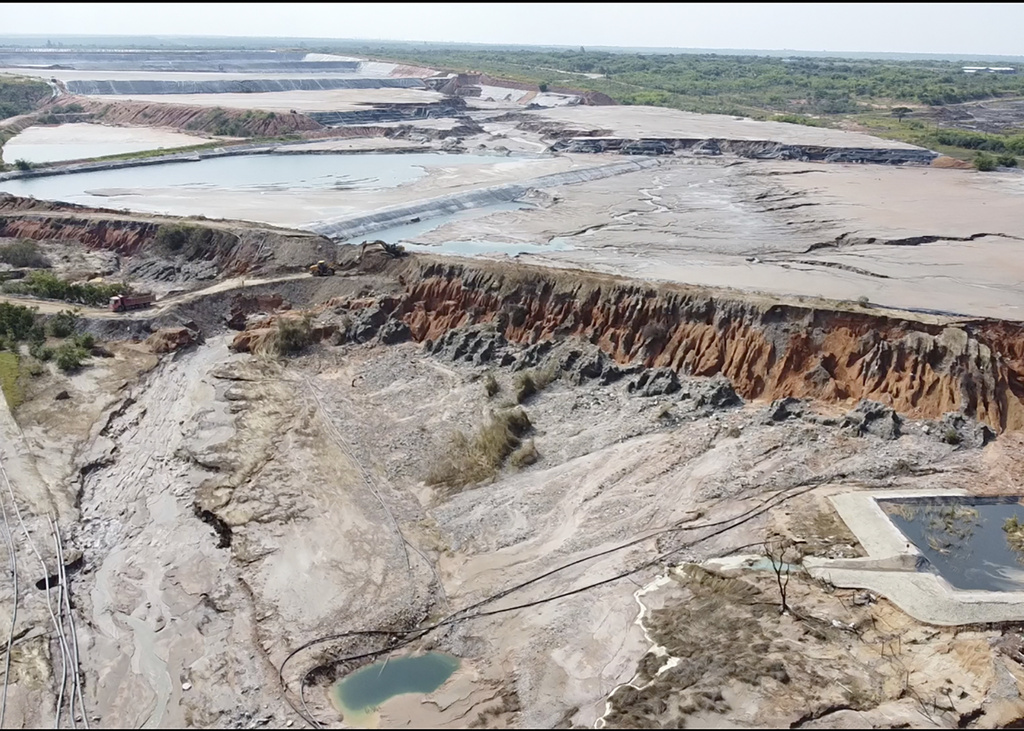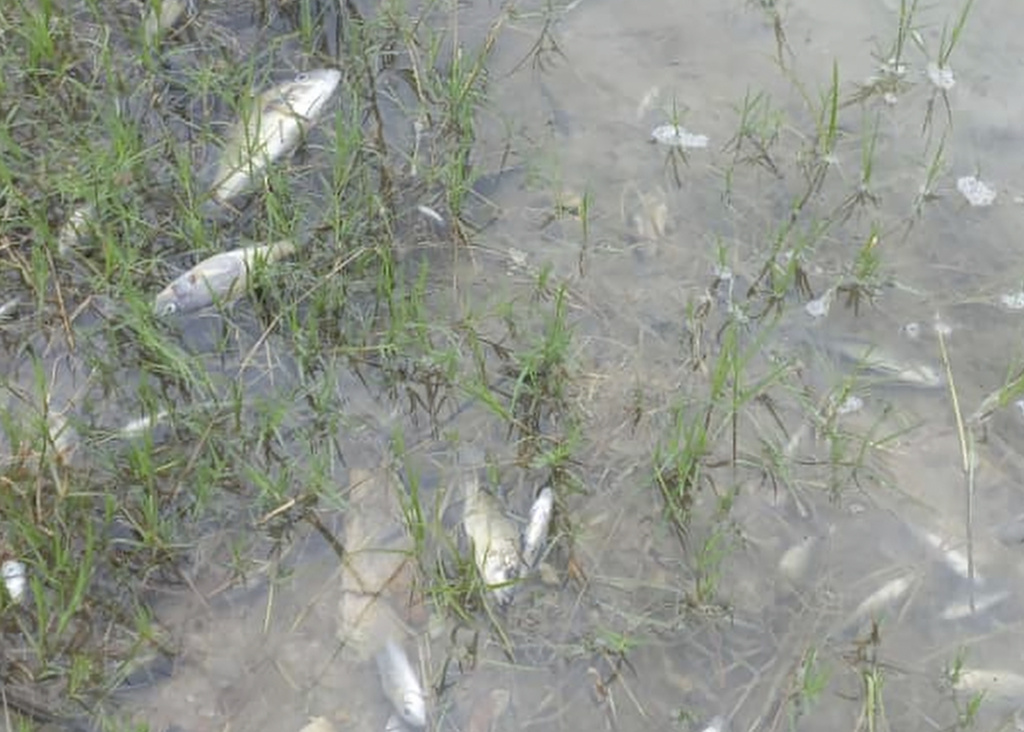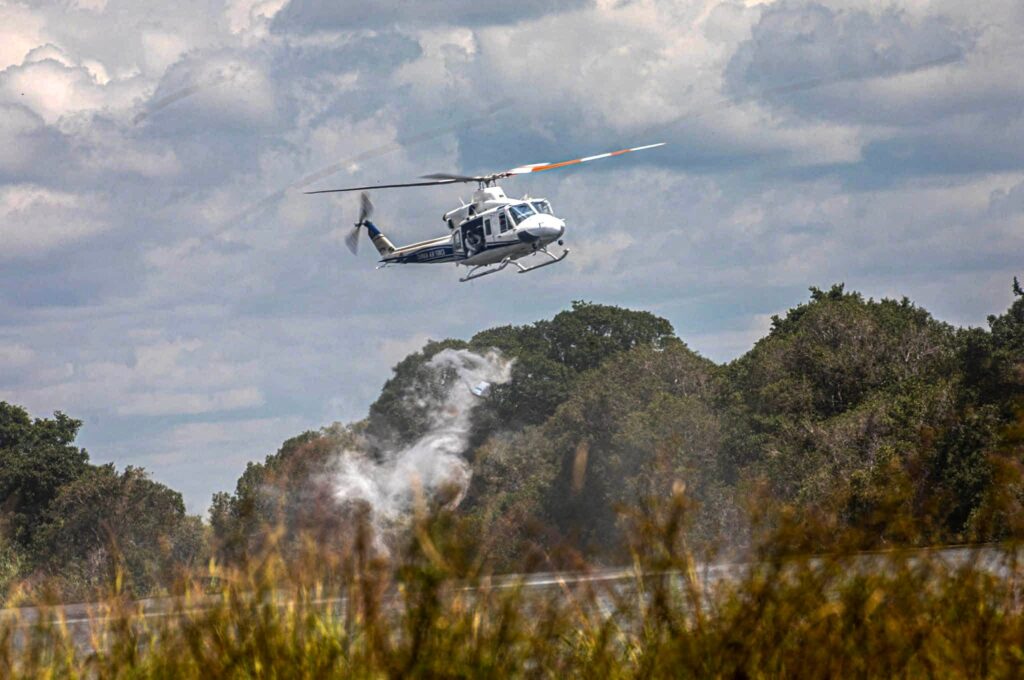A Zambia Air Force pilot flew his helicopter close enough to the ground to see riverbanks full of dead fish. He was tasked in late February with assessing the environmental damage of a massive spill of concentrated acid and toxic heavy metals from a Chinese-owned copper mine that contaminated the Kafue River, the country’s most important waterway.
“You could see a layer of oil or film over the water,” he told ADF. “It looked a bit white-ish, cream-colored, and we saw a lot of dead fish. We put lime in the water to raise the pH level. It took us about five days.”
Fifty million liters of toxic mining waste poured into the Mwambashi River, a tributary of the Kafue, just outside of the mining town of Chambishi on February 18 when a sub-standard earthen wall of the company’s toxic waste reservoir collapsed at the Sino-Metals Leach copper mine, which is owned by the state-run China Nonferrous Metals Industry Group.

The waste contained concentrated acid, dissolved solids and heavy metals. Investigators have detected signs of pollution more than 100 kilometers downstream on the Kafue.
“A river has been effectively killed,” Luwi Nguluka, director of communications for the Wildlife Crime Prevention organization in Zambia, told ADF. “This acid spill is an ecological disaster. It will take years to truly understand the long-term consequences. River ecosystems will require time to regain balance, and the loss of biodiversity and livelihoods classifies this as an act of ecocide.”
An estimated 60% of Zambia’s population lives in the Kafue River basin and depends upon its waters. Fish represents the largest source of protein in the Zambian diet and the river supplies potable water to about 5 million people, including residents of the capital, Lusaka. The government quickly ordered a shutdown of the water supply to Kitwe, a nearby city on the Kafue with a population of more than 700,000 people. Authorities warned people not to fish in or eat any aquatic species from the river or use its water in their homes.
The government also announced an independent investigation to evaluate damage to livelihoods, communities and surrounding ecosystems.
“Government is deeply concerned about the potential harm caused by this acid spillage,” Minister of Green Economy and Environment Mike Mposha said in a February 26 statement, according to the Lusaka Times newspaper. “We are committed to ensuring that Sino-Metals Leach Zambia Limited is held accountable for the environmental and water pollution that has caused loss of crops and businesses for the people of Chambishi, Kalulushi and Kitwe.”
Nguluka said the spill ranks among the most severe environmental crises in the country’s history.

“The high acidity and heavy metals have devastated fish populations, making it difficult for them to breathe and survive,” she said. “Even the fish that do survive are weaker, more prone to disease and are struggling to reproduce. Toxic heavy metals like copper, cobalt and manganese are accumulating in their bodies, rendering them unsafe for consumption.”
Maggie Mwape, executive director of the Lusaka-based Centre for Environmental Justice non-profit, expressed grave concerned about remediation efforts.
“The cleanup process will likely be lengthy, complex and costly,” she said to ADF. “It is uncertain whether the affected communities can ever be fully compensated for their losses. The remediation process must be transparent, inclusive and accountable to ensure that the needs of local communities are prioritized.”
China is quickly expanding its presence in the copper mining industry in Zambia, which is Africa’s second-biggest producer of copper and is ninth-largest in the world. Accounting for 85% of Zambia’s total exports, copper is a key component in smartphones, solar panels and other electronic technology.
Although authorities shut down operations at the Sino-Metals Leach copper mine, Zambians are irate about the disaster and are demanding the government improve the industry’s poor regulation and oversight.
“It really just brings out the negligence that some investors actually have when it comes to environmental protection,” environmental engineer Mweene Himwinga told The Associated Press. “They don’t seem to have any concern at all, any regard at all. And I think it’s really worrying because at the end of the day, we as Zambian people, [it’s] the only land we have.”
Flying over the Kafue River as airmen dumped heavy bags of lime into the water, the ZAF pilot’s thoughts were with the people and wildlife downstream. Like his fellow Zambians, he wants to see the Chinese companies that loom over the mining industry show more commitment and be more accountable to the people and the land.
“They’re making a lot of money, so they should be able to afford to better secure these chemicals,” he said.

